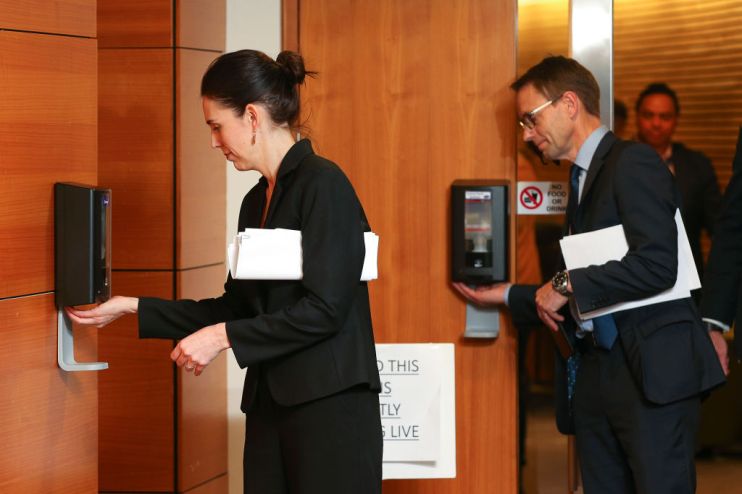Employers must reassure staff that offices are not only safe, but the same buzzy environment they left six months ago

Yesterday, Dame Carolyn Fairbairn, the boss of the CBI, issued a rallying cry to the Prime Minister to do something about Britain’s “ghost towns”. The message was simple — give people confidence to return to the workplace, or the once thriving businesses in the commercial centres of our cities will be doomed.
She is absolutely right — and the government has already responded, with a campaign set to launch next week to get cities moving again, to soothe our ailing economy. But while we need these proactive steps from the government, it’s also up to employers themselves.
Companies need to show that they are militant when it comes to eliminating Covid danger zones, and they need to communicate this to staff before they call them back to the office, offering training for all employees to boost confidence, not only in the new system, but in each other’s ability to adhere to it.
Tackling this first point is not complicated but certainly crucial. The traditional office set-up needs to be re-examined. Rooms must be well ventilated, and each member of staff supplied with sanitising materials. Hot desking is out the window, as is sharing of anything from IT equipment to pens, mugs and certainly finger food like crisps.
Read more: UK firms must return to the office to revive the economy, says CBI boss
Communal areas must be limited to a small number of people at a time, and appliances must be routinely wiped down with anti-bacterial solution. A recent study found 108,000 types of bacteria per square inch on an office kettle, while pens are one of the worst offenders when it comes to office bacteria. These potential Covid threats must be identified and addressed, and any action plan must be communicated to staff ahead of any office return.
Employers also need to demonstrate how professional cleanliness standards can be effectively maintained in a busy environment. This not only means daily cleaning visits but regular viral deep cleans to give staff peace of mind. For smaller businesses, this may sound too expensive, but neighbouring employers could share cleaning visits and cut costs in the process.
Read more: Exclusive: Majority of companies will allow staff to work from home
Finally, employers also need to reassure staff that the office is not only safe, but still the lively hub they left six months ago. In recent weeks, big organisations have been quick to consign staff to working from home for months, years and even indefinitely. I believe this will come with its own problems, and that we should not underestimate the value of human interaction — after all, the workplace is the third most likely place you will meet your partner.
While office romances may be facing a steep decline, there is an important point here for employers about letting workers know, ahead of any return, that these precautionary steps, while stringent, will not threaten some of the great benefits of the office.
The burden of new cleanliness routines must be carried by the employer and the professional agencies they use, while staff should be reassured that the office will remain a safe, vibrant and stimulating place where workers, especially juniors, can learn, develop and grow.
Main image credit: Getty